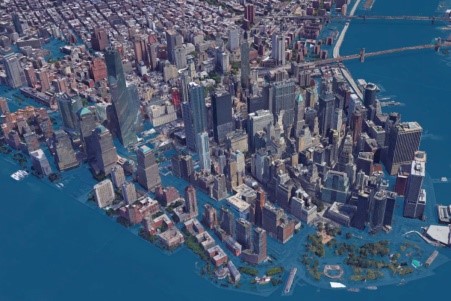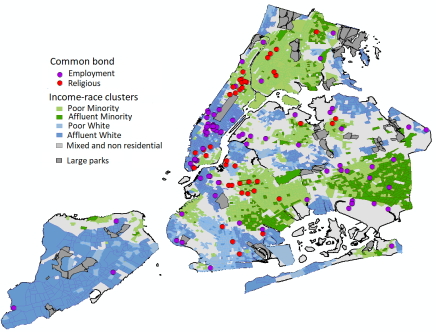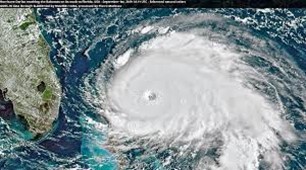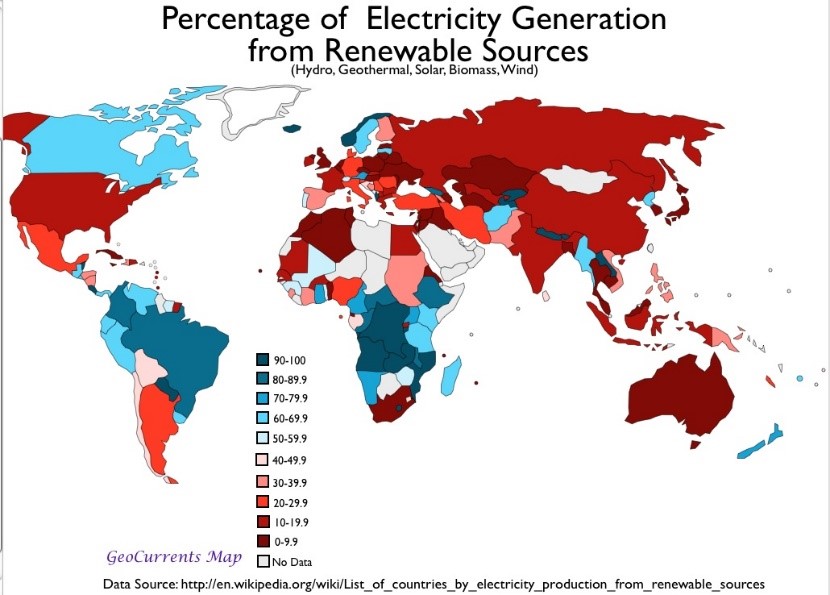Geography and Environmental Studies Majors address the most pressing issues humanity is facing today

It is an exciting time to be a Geographer or Environmental Professional. In our fast changing and interconnected world, the need to understand and manage societal and environmental changes as well as define opportunities for sustainable and equitable development is becoming ever more important. The geography and environmental studies undergraduates of today will come into the workplace at time when their knowledge, skills, and capacity will be eagerly sought out. The popular press and media highlight how we live in time of innovation and technological advances while our ability to combat illness and increase productivity expands. At the same time, we witness growing inequality, geopolitical instability, and new epidemics and already experience consequences of climate change in many domains of life. Large coastal cities, including New York, face rising sea levels. Powerful and more frequent storms destroy infrastructure and human lives. Food insecurity and clean water scarcity increase. While many of these trends are global, their effects are geographically uneven. In response, conditions for large-scale social and environmental transformation to be implemented in the next several decades are being defined.

The Department of Geography and Environmental Science has crafted a set of programs to train students to become globally aware, informed, and positive agents of change during this critical era for our city, nation, and the world. Majors in Geography and Environmental Studies directly focus on connections between natural and human systems, between global and local processes, and between different parts of the world. They provide integrative knowledge and skills needed to find solutions to the complex problems humanity is facing today; the solutions that must be scientific, technological, social, and political at once and be effective globally while offering local pathways to sustainable development.

| CITIES AND GLOBALIZATION. DIGITAL MAPPING, GIS, AND GEOINFORMATICS. SUSTAINABILITY. EARTH SYSTEM SCIENCE. HUMAN DIMENSIONS OF EARTH SYSTEM. ENVIRONMENTAL POLICY. |
Environmental Studies (ES) Major
Environmental Studies (ES) major is for students with an interest in the natural sciences. Our students can fulfill a variety of major requirements by taking courses in chemistry, biology, and other natural sciences. It has two tracks. The Earth Systems Science track prepares scientists able to inform the dramatic policy changes needed to curb the impacts of global environmental change. It focuses on interactions between earth sub-systems, including the solid earth, oceans, atmosphere and biosphere. After completing this track, students will be prepared for a variety of positions in the field of environmental science or for graduate study. The Human Dynamics of Earth Systems track is for students who aspire to a career at the interface of policy and science or want to become a scientifically literate policy-maker. This track combines a background in earth and environmental science with the knowledge of environmental policy.
IMPORTANT: Pre-health students can earn a major in ES. It will provide them with the necessary background to understand the increasingly important effects of the changing environment on human health and public health systems while allowing them to fill a variety of major and pre-medical requirements with the same courses.

The Geography major is designed for students interested in social sciences, computer science, and humanities. Geography examines the people and the planet using concepts of space, place, scale, location, and borders. It focuses on connections between places, regions, and nations and human-environment interactions. Geography prepares students to understand global environmental change in relation to the global economy, geopolitics, and urbanization. Our students use unique geographic research methods, such as computer-based spatial analysis and mapping, to analyze how social and natural processes vary from place to place and across geographic scales. As geographers, they will be able to creatively imagine paths to environmental and social sustainability.
Concentrations in Sustainability and Cities and Globalization prepare future policy-makers and experts who possess the knowledge to explain causation in human-environment interactions and the analytical skills needed to develop integrative socio-economic and political solutions to sustainability. A concentration in Digital Mapping and Geographic Information Science provides advanced training in the field of geospatial technology, remote sensing, and geographic information science. These skills are vital for supporting decision-making in various policy and industry worlds. The geography minor allows majors in all areas of study to acquire geographic knowledge and geographic research skills, including spatial analysis and mapping, that are most directly relevant to their discipline.

To learn more and read student testimonies, visit http://www.geography.hunter.cuny.edu/index.html.
Download this page as a PDF handout.
Download department brochure.
